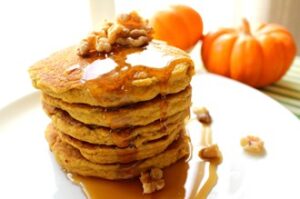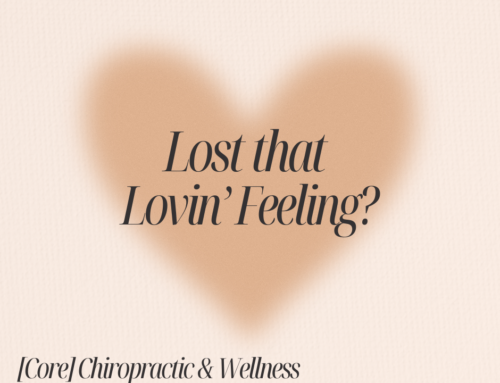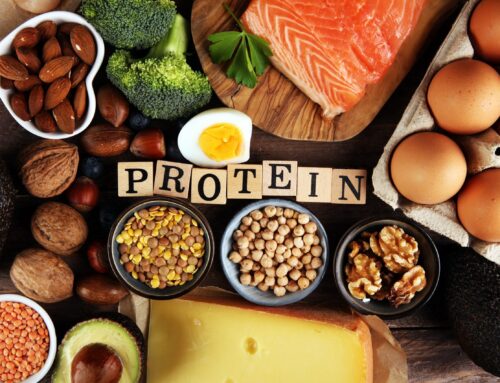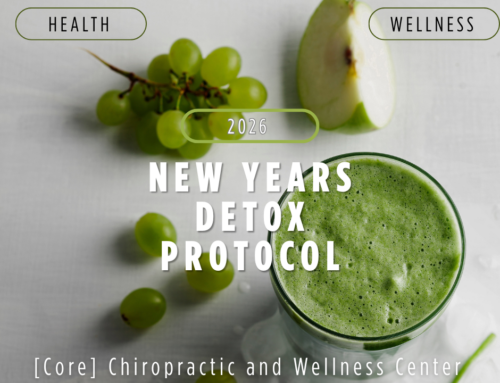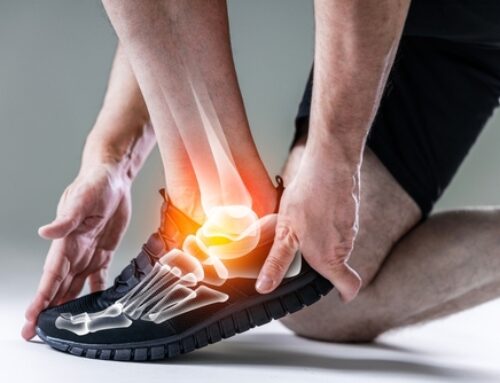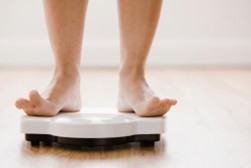 This month, we’re thrilled to bring back our iconic [LivFit] Nutrition Seminar, a cornerstone of our practice for nearly two decades! This dynamic class is your gateway to mastering a sustainable, health-optimizing eating lifestyle. Whether you’re navigating the confusion of conflicting dietary advice, seeking practical ways to embrace clean eating in a fast-paced world, or eager to take the next steps in your wellness journey, this seminar is designed for you. Join us to unlock clear, actionable insights and ignite your path to vibrant health! [LivFit] is October 23rd and 30th from 6-8pm each night. We host [LivFit] right here in our office. We do have to limit the amount of participants, so please register right away!
This month, we’re thrilled to bring back our iconic [LivFit] Nutrition Seminar, a cornerstone of our practice for nearly two decades! This dynamic class is your gateway to mastering a sustainable, health-optimizing eating lifestyle. Whether you’re navigating the confusion of conflicting dietary advice, seeking practical ways to embrace clean eating in a fast-paced world, or eager to take the next steps in your wellness journey, this seminar is designed for you. Join us to unlock clear, actionable insights and ignite your path to vibrant health! [LivFit] is October 23rd and 30th from 6-8pm each night. We host [LivFit] right here in our office. We do have to limit the amount of participants, so please register right away!
Inflammation and Your Health
Science has told us for years that certain forms of cancer, autoimmune disorders, and degenerative diseases are a result of high rates of systemic inflammation. This inflammation problem is heavily influenced by our daily decisions of nutrition and other lifestyle factors. But, the idea that depression and other mental health conditions could be caused by similar inflammatory agents and not by an imbalance of chemicals in the brain seems almost sacrilegious to ask.
Yet as popular as the “Depression=Neurotransmitter Imbalance” theory is, the theory is starting to show some cracks. For example, recent research has shown that:
- Reducing levels of norepinephrine, serotonin and dopamine does not produce depression in humans, even though it appears to do so in animals.
- Although some depressed patients have low levels of serotonin and norepinephrine, the majority (75%) do not.
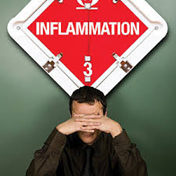 A new theory called the “Immune Cytokine Model of Depression” is challenging the old imbalance model. It holds that depression is not a disease itself, but instead depression may be a symptom of chronic inflammation.
A new theory called the “Immune Cytokine Model of Depression” is challenging the old imbalance model. It holds that depression is not a disease itself, but instead depression may be a symptom of chronic inflammation.
The backbone of this theory falls on these points:
- Depression is often present in acute, inflammatory illnesses.
- Higher levels of inflammation increases the risk of developing depression.
- Administering endotoxins that provoke inflammation to healthy people triggers classic depressive symptoms.
- Remission of clinical depression is often associated with a normalization of inflammatory markers.
- Antidepressants (particularly SSRIs) have been shown to reduce the production of pro-inflammatory cytokines. This suggests that SSRIs are anti-inflammatory, which would explain their mechanism of action if inflammation is a primary driver of depression.
The research on this topic is robust, and the connection between depression and inflammation is becoming more established. But if depression is primarily caused by inflammation, the obvious question that arises is, “what is causing the inflammation?”
Common causes of inflammation and depression
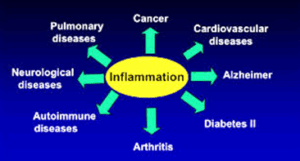 Inflammation has now been linked to nearly all modern diseases, including diabetes, Alzheimer’s, cardiovascular disease, autoimmune disease, allergies, asthma, and arthritis. So perhaps it shouldn’t come as much of a surprise that depression is also caused by inflammation.
Inflammation has now been linked to nearly all modern diseases, including diabetes, Alzheimer’s, cardiovascular disease, autoimmune disease, allergies, asthma, and arthritis. So perhaps it shouldn’t come as much of a surprise that depression is also caused by inflammation.
The downside of this connection is that our modern diet and lifestyle are full of factors that provoke inflammation and thus cause disease. The upside is that if we address these factors and reduce inflammation, we can prevent and even reverse the chronic, inflammatory diseases that have become such a fixture of our culture. The most common causes of inflammation are associated with depression.
Diet
There are several problems with the modern diet. It is high in foods that provoke inflammation, such as refined flour, excess sugar, oxidized (rancid) fats, trans fats, and a wide range of chemicals and preservatives. And, it is low in foods that reduce inflammation, like long-chain omega-3 fats, fermented foods, and fermentable fiber. Numerous studies have associated the Western diet with major depressive disorder.
Obesity
One of the most harmful consequences of the modern diet has been the dramatic increase in obesity. Obesity is an inflammatory state. Studies have shown higher levels of inflammatory cytokines in obese people, and weight loss is associated with a decrease in those cytokines. Obesity is closely linked with depression, and while that relationship is likely multifactorial and complex, inflammation appears to play a significant role.
Gut health
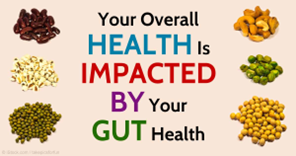 Disruptions in the gut microbiome and leaky gut (i.e. intestinal permeability) have both been shown to contribute to inflammation and correlate with depression. Numerous studies have linked unfavorable changes to the bacteria inhabiting our gut with major depressive disorder.
Disruptions in the gut microbiome and leaky gut (i.e. intestinal permeability) have both been shown to contribute to inflammation and correlate with depression. Numerous studies have linked unfavorable changes to the bacteria inhabiting our gut with major depressive disorder.
Stress
Stress may be one of the most obvious causes of depression, but the link between stress and inflammation is less well-known. Research has shown that psychosocial stress stimulates the pro-inflammatory cytokine network. These increases in inflammatory cytokines are in turn closely related to depressive symptoms, as described above.
Physical activity
There’s a huge amount of evidence indicating that exercise is an effective treatment for depression—in many cases as effective or more so than antidepressant drugs. It has also been shown to prevent depression in healthy people with no pre-existing symptoms. Interestingly enough, while exercise initially produces the same inflammatory cytokines that are associated with depression, that is quickly followed by induction of anti-inflammatory substances. This is known as a hormetic effect, where an initial stressor provokes a compensatory response in the body that has positive, long-term consequences.
Sleep deprivation
Chronic sleep loss has been shown to increase inflammatory markers even in people that are otherwise healthy. Chronic sleep loss is a well-known contributing factor to developing depression in the first place. It is also a major factor in prevention of fat burning and high blood sugar levels.
Vitamin D deficiency
Low levels of vitamin D are common in Western populations, and there is growing evidence linking vitamin D deficiency to depression. Supplementation with vitamin D to normalize serum 25D levels has been shown to reduce inflammatory markers in some, but not all cases.
[LivFit] Action Point to Reduce Inflammation and Depression:
Adopt an anti-inflammatory diet and lifestyle. This means eating a nutrient-dense, whole foods diet, getting enough sleep, managing stress, engaging in appropriate amounts of physical activity, getting enough Vitamin D, and nourishing your gut.
[LivFit] Approach To Weight Loss
 It seems simple right? “Eat less, exercise more, and you will lose weight.” Unfortunately, it is just not that easy. Yes, most Americans could use a few less calories in their daily intake, but look what happens when you restrict calories:
It seems simple right? “Eat less, exercise more, and you will lose weight.” Unfortunately, it is just not that easy. Yes, most Americans could use a few less calories in their daily intake, but look what happens when you restrict calories:
- Your metabolism slows down to match your restrictive diet.
- Hormones increase your appetite causing you to eat more at each meal, leading to fat gain.
- Stress hormones increase, causing a rise in inflammation and disturbances of sleep.
All this equals to why calorie restrictive diets are doomed to fail and produce illness, not wellness.
The [LivFit] Approach
 So what if we could maximize foods that make us feel full but don’t overwhelm us calorically? This would allow us to lose weight without stressing the body. This is the [LivFit] approach to weight loss: maximize nutrients, feed the brain, increase your metabolism, burn fat, and enjoy your food!
So what if we could maximize foods that make us feel full but don’t overwhelm us calorically? This would allow us to lose weight without stressing the body. This is the [LivFit] approach to weight loss: maximize nutrients, feed the brain, increase your metabolism, burn fat, and enjoy your food!
Before we give you any how to’s, remember when you are looking to drop weight or if you are changing up your diet plan, keep your recipes simple. Sure, there are wonderful tasting and healthy recipes out there that have 20 exotic ingredients in it. But minimizing these adventurous meals to only special occasions will help you be more successful long-term. On the everyday menu, keep it simple and easy, but not a processed or freezer meal. Also, eat plenty of food. These [LivFit] friendly foods may make your plate appear to be overloaded with food, but don’t equate that with extra calories or a weight gaining portion. Eat enough food to feel satisfied but not stuffed.
[LivFit] Weight Loss–it is not low carb.
 [LivFit] is not exactly a low carb philosophy, but remember that when it comes to fat loss, carbs can be your enemy. We teach a simple saying, “You have to earn your carbs.” Reserve meals that are higher in healthy carbohydrates for the days that you need this important energy producing macronutrient. In order to earn your carbs, you have to get up and move.
[LivFit] is not exactly a low carb philosophy, but remember that when it comes to fat loss, carbs can be your enemy. We teach a simple saying, “You have to earn your carbs.” Reserve meals that are higher in healthy carbohydrates for the days that you need this important energy producing macronutrient. In order to earn your carbs, you have to get up and move.
There is no substitute for activity in your day. It doesn’t have to be “exercise” but it does have to be an activity that burns energy. For most people, that will allow 7-15% of your daily food intake to be from carbohydrates. If you are exercising intensely, you may need to increase your carbohydrate intake to 15-30% simply to stimulate fat loss. This is because a low-carb diet may stress the body out during times of high physical activity.
Picking the right carbohydrate is the most important thing when choosing to include carbs into your meal. Processed carbohydrates like wheat flour and sugar need to be replaced with real food that are packed with nutrients. For example, try this [LivFit] friendly, carb heavy breakfast that is fat burning on an active day.
- 2 eggs
- 3 T canned plain pumpkin purée
- ½ Tsp vanilla extract
- 2 Tbl ground flax meal
- 1 Tbl vanilla whey protein powder
- ¼ tsp baking powder
- Dash of salt
- 1 tsp of cinnamon
- ¼ tsp of ground cloves
Mix all ingredients and cook on a medium hot skillet.
Top with: butter, cream cheese, or Pumpkin Spice Syrup
Pumpkin Spice Syrup Recipe –1 ½ cups of water, 6 Tbl pumpkin purée, 1 tsp pumpkin spice, ¼ tsp salt, 2 tsp coconut oil, ¼ + ⅛ tsp glucomannan, ½ tsp vanilla extract, ½ tsp maple flavoring, 1 tsp of stevia extract
In a small saucepan, whisk together the water through coconut oil and bring to a boil. Sprinkle the glucomannan in while whisking so it doesn’t clump. Whisk the syrup until it thickens slightly (a few minutes), then remove from heat. Whisk in the extracts and stevia. Let cool and store in the refrigerator. The syrup will get thicker as it cools.
Protein for Weight Loss
A high protein meal is essential for those who are trying to lose weight. Protein is the building block for the muscle production needed for increasing your metabolism. Protein also helps to stabilize blood sugar, an important key to preventing fat gain. Protein slows carbohydrate absorption allowing for longer energy production. Protein should be a part of every meal and snack of the day.
Weight Loss Action Points:
- Eliminate refined sugars and flour from your diet.
- Earn your carbohydrates with exercise.
- Always include protein when ingesting healthy carbohydrates.
- Never include fats with carbohydrates.
Final thoughts and recommendations
We have known about the connection of inflammation, depression, and weight gain since the 1980’s. Unfortunately, the old theories of chemical imbalances and calorie related weight gain continue to be the dominant paradigm 30 years after we have seen these to no longer be true. We should shift our focus from viewing poor health as being a disease caused by a chemical imbalance or bad genes, which often requires medication to correct, to being a symptom of a deeper, underlying problem of our daily lifestyles and choices. This new approach, our [LivFit] approach, leads to entirely new avenues of change that are more effective and safer.


